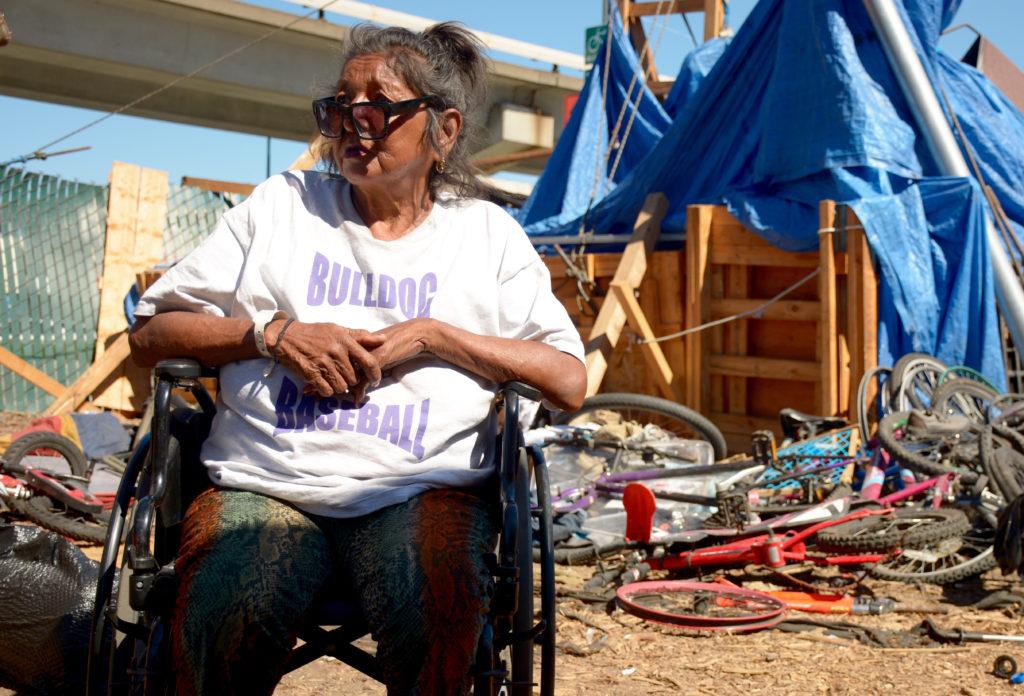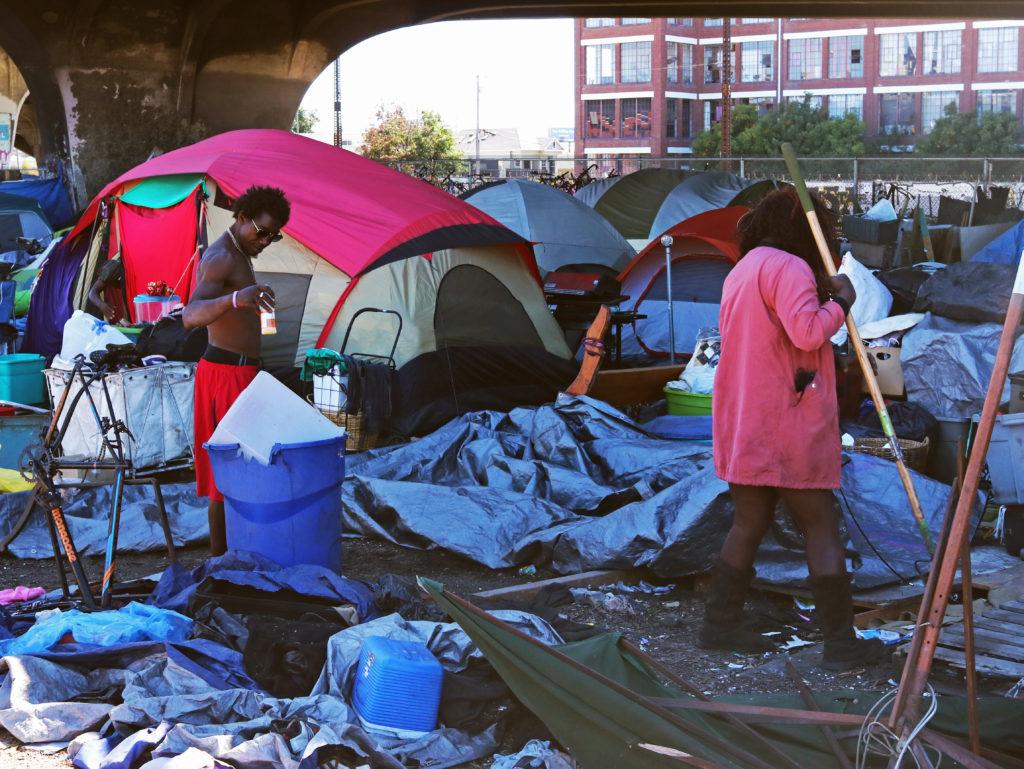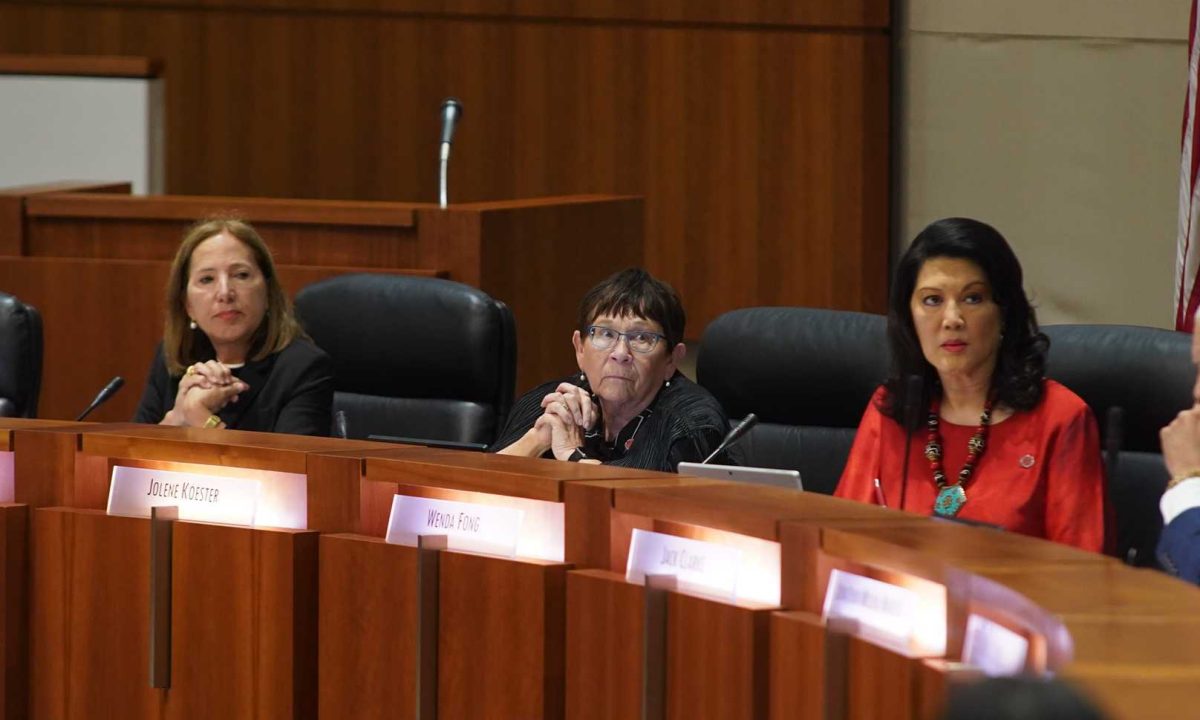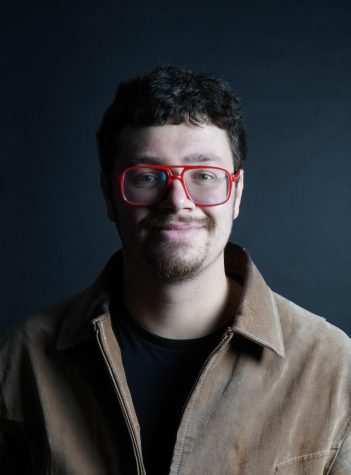Fire engulfed a homeless encampment on E 12th Street in downtown Oakland on Tuesday, Sept. 11, scorching one-third of the shelters along with all the belongings of 30 of the 80 residents.
The blaze raised questions about the housing crisis, and the treatment of citizens who need the most assistance.
“I was chilling in my tent with a friend, then I heard a hysterical screaming coming from a woman,” said Fred Smith. “By the time we gathered all the fire extinguishers it was too late, a propane tank had blown up.”
The kindly 46-year-old has been homeless for 13 years, and has lived on that lot of land for about five years.
The fire didn’t damage Smith’s property because, he said, he stopped it using his “chi.” He pointed to an almost perfectly straight line of charred land where the fire stopped.
According to several camp residents, the fire began at around 1:30 a.m. and quickly grew to a massive size. By the time the fire department showed up, there was already a police presence, and an approximately 450-square-foot area had been leveled.
Once firefighters fought back the flames, police found one deceased man in his tent. Police soon determined the man had been dead for several days.
Sai, who declined to provide a last name, described waking up in the middle of the night and coming out of his tent to be flanked by fire on both sides.
It was the third fire that Sai had lived through just this year, he said, adding that such incidents have become “normal.”
“I’ve lost everything three times in a row,” Sai said.
Sai said over the past year, he’s spent upwards of $300 on wood in an effort to rebuild his home. The fires are a natural byproduct of the deplorable situation at the encampment, he said, and during his nearly two years at E 12th Street, he’s only seen the population increase.
“If you’re pushing people to the side to a crowded spot, and bundle them up, what happens to a bundle spot? Chaos,” Sai said. “We don’t need nothing necessarily. We just need some understanding.”
Jennifer Saepharn has been Sai’s neighbor in various encampments over the years, and was friends with him for years prior. She said she wants a more permanent living situation, and views the encampment as an opportunity to climb out of poverty. But the overcrowding is a hindrance to progress, she said.
The revolving door of residents means lots of people are entering this site, leading to many social problems within.
“I’m doing my best to keep a job but it’s hard to actually do that when the living situation is such chaos. The daily chaos that happens with these people around us, I can’t deal with it,” Saepharn said. “It’s keeping me homeless.”
Oakland mayoral candidate Cat Brooks said the city should be doing more.
“They’re trying to put a Band-Aid on a gunshot wound,” Brooks said. “We have a serious housing issue. We need to be responding with humanity at scale.”
Sai called the efforts to help camp residents after the fire a “non-commitment.”
Residents said a lack of response from the City of Oakland and the Red Cross left them with no other option but to fend for themselves.
“When the Red Cross came, all they gave me was a cup of warm coffee,” he said. “We got more donations from the people on the street than from the city… than people who’s supposed to care for us.”
Saepharn said she also felt that the Red Cross response to the fire was inadequate.
“I don’t know why everybody didn’t get paid. We should have received some type of financial assistance,” Saepharn said.
Red Cross media representative Cynthia Shaw told the Xpress that the organization’s response was the same as in all such emergencies.
“We provided water, food, snacks, blankets and toiletries to those impacted,” Shaw said. “This is what we provide to those who are affected by residential fires.”
She added that relief support depends on whether the agency can verify the individual’s residency.
“What we do in any residential housing, whether traditional or non-traditional, like a tent, boat or car, is we need verification of residency and identity and that was being worked on by community advocates and social workers,” Shaw said.
Meanwhile, the camp’s residents went on rebuilding as music blared from car stereos and a whiskey bottle got passed around.









